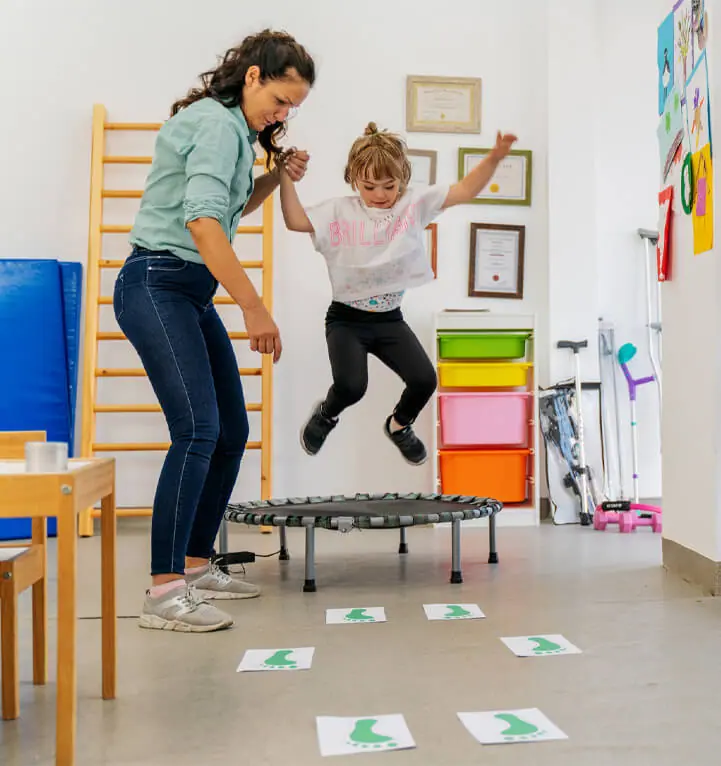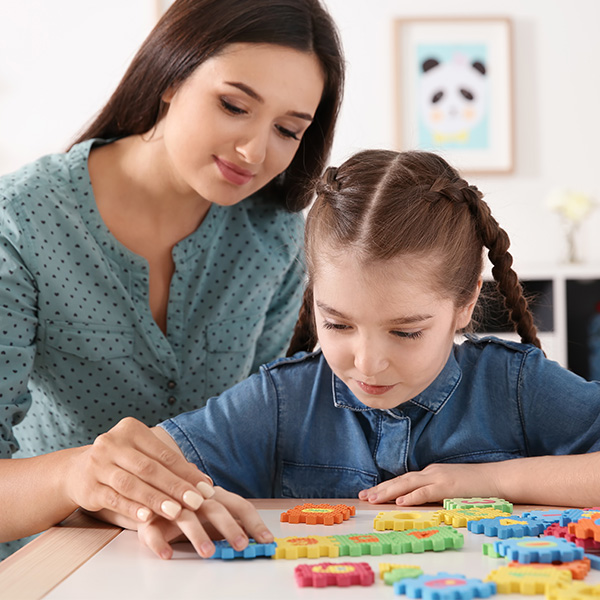The value of an ABA Behavioral Therapist in daily routines
Exploring the Benefits of Behavioral Treatment in Everyday Life
Behavior Therapy uses considerable advantages in day-to-day live. It gears up individuals with devices to take care of anxiety and anxiety properly. By concentrating on changing adverse actions and believed patterns, this strategy cultivates individual growth and resilience. The strategies used, such as cognitive restructuring and mindfulness, promote self-awareness. Several have found transformative success via these techniques. What remains to be checked out are the details techniques that can lead to long-term change and boosted emotional well-being.
Recognizing Behavioral Treatment: A Brief Overview
Behavioral Therapy, which concentrates on modifying details habits instead of diving into underlying emotional concerns, acts as a practical approach for people looking for to enhance their mental wellness. This form of therapy operates the concept that habits is found out and can be unlearned or modified with various strategies. It makes use of approaches such as penalty, modeling, and support to motivate positive behavior modifications.
Behavior Therapy is particularly reliable for those having a hard time with concerns like anxieties, addiction, and certain state of mind problems. By establishing clear, achievable goals, customers can track their progress and construct self-confidence in their capacity to alter. In addition, this organized strategy enables measurable results, making it easier for therapists and clients alike to examine efficiency. Overall, Behavior Therapy highlights action and results, offering individuals the tools necessary to resolve particular difficulties in their day-to-days live.
How Behavioral Therapy Deals With Anxiety and Anxiousness
While people frequently experience anxiety and anxiousness as a component of day-to-day live, Behavioral Therapy supplies effective approaches to handle and minimize these feelings - ABA Therapy. This healing strategy concentrates on identifying and modifying negative idea patterns and behaviors that add to enhanced stress and anxiousness degrees. Through strategies such as cognitive restructuring and direct exposure therapy, people learn to challenge illogical thoughts and gradually face their anxieties in a controlled setting
Furthermore, Behavioral Therapy emphasizes the growth of coping devices, enabling people to react to stress factors much more constructively. Techniques like leisure training and mindfulness can help people acquire awareness of their emotional feedbacks, promoting a calmer state of mind. By cultivating strength and enhancing analytic abilities, Behavioral Treatment furnishes people with the tools needed to navigate life's challenges better. Eventually, this strategy not only minimizes instant signs and symptoms of stress and anxiety and stress and anxiety yet additionally prepares for long-term psychological health.
The Function of Behavioral Treatment in Personal Growth
Personal growth typically pivots on the ability to understand and reshape one's ideas and habits, making Behavior Therapy a beneficial tool in this trip. By concentrating on the link in between activities and feelings, individuals can identify maladaptive patterns that prevent progress. Behavioral Therapy encourages self-reflection, enabling people to recognize their actions and triggers, which cultivates greater self-awareness.

As clients experience incremental successes, their self-esteem frequently enhances, further sustaining their development. Ultimately, Behavioral Treatment functions as a catalyst for transformation, assisting individuals access their potential and lead even more fulfilling lives by fostering adaptive thinking and habits.
Practical Techniques Utilized in Behavior Therapy
Reliable Behavior Therapy employs a selection of sensible strategies that facilitate change in actions and ideas. One commonly used approach is cognitive restructuring, which tests adverse idea patterns and replaces them with even more positive ideas. An additional method is direct exposure treatment, where individuals gradually face their worries in a regulated environment, assisting to minimize stress and anxiety gradually. Behavioral activation encourages engagement in satisfying activities, combating feelings of anxiety and sleepiness. In addition, skills training concentrates on developing particular dealing techniques to manage stress and anxiety or social conflicts successfully. Support strategies, such as favorable support, are utilized to motivate desirable actions by gratifying customers for their progress. Mindfulness practices are typically included, advertising present-moment awareness and minimizing impulsivity. ABA Therapy. Jointly, these strategies encourage people to comprehend and change their actions, causing enhanced emotional well-being and a more meeting life
Real-Life Success Stories: Improvements Via Therapy

James, who dealt with problems connected to temper monitoring, profited from direct exposure treatment. By gradually confronting triggering scenarios, he established healthier coping mechanisms, resulting in enhanced relationships and emotional guideline.
These success stories highlight the adaptability of Behavior Treatment in addressing a range of emotional obstacles. Participants typically report improved self-awareness and durability, empowering them to browse life's challenges better. Inevitably, the transformative power of Behavioral Treatment showcases its capacity to promote purposeful change, enabling people to lead satisfying lives and attain personal development.
Regularly Asked Inquiries
How Much Time Does Behavioral Therapy Usually Last?
Behavior Therapy normally lasts from a number of weeks to numerous months, depending upon specific needs and therapy objectives. Sessions commonly take place weekly, with progress evaluated on a regular basis to figure out the appropriate duration and regularity of therapy.
Is Behavior Treatment Ideal for Children?
Behavior Therapy is typically considered appropriate for youngsters, as it can successfully address numerous behavioral problems and emotional difficulties - ABA Therapy. Customized techniques can boost youngsters's coping abilities, making therapy a useful option for their development and health
Can I Exercise Behavioral Treatment Methods on My Own?
The specific asked yourself if self-practice of Behavioral Therapy techniques was possible. Professionals suggest that while standard approaches can be used individually, expert guidance frequently enhances effectiveness and assurances correct application for ideal end results.
What Credentials Should a Behavioral Specialist Have?

A competent behavioral specialist normally holds a master's or postgraduate degree in psychology or a relevant area. Additionally, they need to possess pertinent licensure, certifications, and functional experience in implementing Behavioral Therapy methods successfully with clients.
Are There Any Type Of Adverse Effects of Behavior Therapy?
The concern of adverse effects in Behavior Therapy discloses that, while generally risk-free, some individuals may experience short-term discomfort, psychological distress, or boosted anxiety during sessions. These impacts are workable and content typically brief.
Behavior treatment, which concentrates on modifying certain habits instead than delving into underlying psychological concerns, offers as a sensible technique for people seeking to enhance their mental health and wellness. While individuals usually experience anxiety and stress and anxiety as a component of day-to-day life, behavioral therapy supplies reliable strategies to handle and decrease these feelings. When people welcome behavioral treatment, exceptional makeovers can take place, illustrating the profound effect of restorative methods. Behavior treatment is normally thought about ideal for youngsters, as it can properly deal with various behavior concerns and check out this site emotional obstacles. The private wondered if self-practice of behavior treatment strategies was possible.